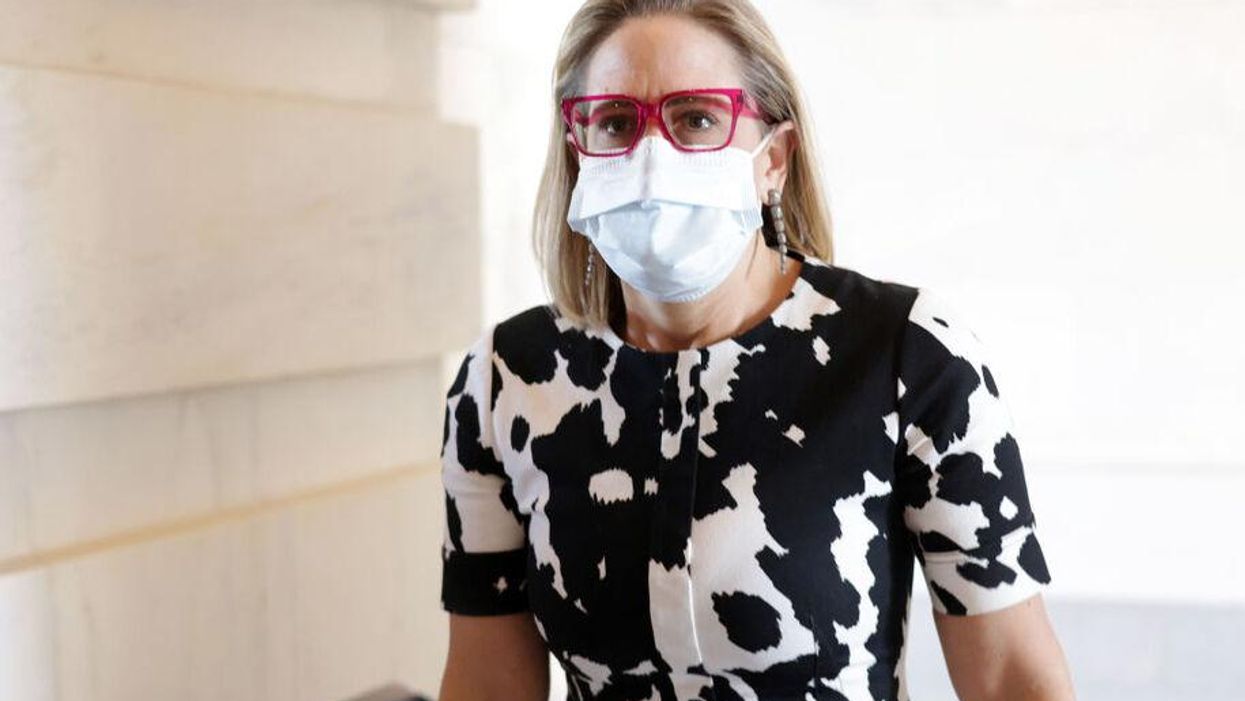Senate Democrats are trying to get rid of the filibuster for voting rights legislation. This shouldn’t be a controversial decision, and in some ways, it isn’t; Democratic Sens. Kyrsten Sinema of Arizona and Joe Manchin of West Virginia are the biggest obstacles. When Senate Majority Leader Chuck Schumer opened the Senate session on Tuesday, he reminded folks that the “eyes of the nation” will be watching what happens with voting rights, as reported by CNN.
Specifically, the Freedom to Vote: John R. Lewis Act covers several important dimensions in terms of voting access. The package protects access to early voting, as well as voting by mail and makes Election Day a national holiday—changes that could be huge for the average working person or parent in the nation. The bill also allows the Justice Department to intervene if necessary when it comes to states that have a history of interfering with voting. So, why are Sinema and Manchin holding out? The bill allegedly has their support, but apparently not enough for them to get rid of the Republican filibuster using what is sometimes called the “nuclear” option. And now major progressive organizations (in addition to her colleagues andconstituents) are putting pressure on Sinema to act. Or, you know … lose their support.
Emily’s List (a group dedicated to getting pro-choice women into office) released a statement to Twitter today from organization president Laphonza Butler. The group notes that while Sinema is pro-choice in terms of abortion rights, her failures to actively support the voting rights legislation ultimately outweigh her position on reproductive rights.
“Electing Democratic pro-choice women is not possible without free and fair elections,” the statement reads in part. “Protecting the right to choose is not possible without access to the ballot box. So, we want to make it clear: if Sen. Sinema can not support a path forward for the passage of this legislation, we believe she undermines the foundations of our democracy, her own path to victory and also the mission of EMILY’s List, and we will be unable to endorse her moving forward.”
The statement notes that Emily’s List hasn’t backed Sinema since her election in 2018, and added that the organization is “proud” to work with pro-choice Democrats who do the work to “protect” “critical” rights, including both for voting and reproductive freedom.
This situation is deeply, deeply frustrating, and it’s no wonder people with power and influence are speaking out. In an open letter to the Senate, NAACP president and CEO Derrick Johnson stressed that there is not a “time more defining to the American story” than the chapter they’re currently involved in. Johnson then asked the question: “What country will your children and grandchildren be left with, given the relentless assaults on American freedom and democracy?”
Progressives are being asked to answer for Sinema and Manchin, too. For example, host Nate Burleson spoke to Massachusetts Sen. Elizabeth Warren on CBS Morning this past Sunday and asked if she thinks the two senators should be challenged in their upcoming 2021 primaries. Warren delicately stepped around this possible firepit of a question and tried to appeal to the masses (and hopefully, the senators in question) by discussing on air who is truly vulnerable to cuts in voting rights protections.
“Who are they trying to keep from voting?,” Warren said in reference to Republicans. “Black people, brown people, college students, people who live on tribal reservations, trying to keep those folks from voting because they might vote Democratic,” she stated. Warren is, of course, right, but it remains to be seen if Sinema and Manchin will actually act.
While the circumstances are not exactly the same, we know that Sinema (and Manchin, for that matter) did vote to waive the filibuster when it came to raising the debt ceiling back in December. There’s been a lot of antagonizing about setting precedence and consequences to changing Senate procedures, but at risk of sounding callous, there is perhaps nothing more fundamental and vital in our country’s politics right now than protecting voting rights, especially when we already know Republicans are looking for ways to attack the most vulnerable, marginalized voters. (If you want a deeper dive into the similarities and differences between these situations, I recommend this write-up by Amber Phillips at The Washington Post, by the way).
Just last week, Sinema practically gave Republicans a metaphorical hug when she declared her aforementioned support of the voting rights legislation—before explaining why she won’t actually support it in practice. Sinema said the bills “treat the symptoms of the disease” but don’t fully address it, and she will not “support separate actions that worsen the underlying disease of division affecting our country.”
Democracy is in danger, folks. The time for “both sides” rhetoric and making nice is long past gone (if it was ever remotely appropriate, to begin with…) and the absolute least these people can do is actually protect our constitutional rights… Why does even typing that make me feel like I’m writing about Republicans?
Maybe because I practically am.
Rerpinted with permission from Daily Kos












